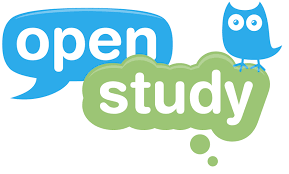It is widely understood that students benefit from the collaborative wisdom of their instructors and classmates. A number of free online resources have expanded this notion into different ways to crowdsource – that is, to pull together from the general public of internet users – knowledge and materials, allowing students to work with and learn from members of a worldwide community.
OpenStudy
Advertising itself as something like a massively multiplayer online study group, OpenStudy is a social network based on collaborative learning. The free service was created by colleagues from Georgia Tech and Emory University and opened to the public in the summer of 2010. OpenStudy invites users to build study networks by joining groups and following other students. Participants post questions on nearly any academic subject and the site matches them up with others who, based on their profiles and availability, help guide the asker to a source or a solution.
Aware of the potential hazard of students using the site as an “answer machine” (i.e., as a means to cheat), the framers of OpenStudy emphasize a code of conduct for its users, with the possibility that violators may be banned. All members of the OpenStudy community are encouraged to be polite and supportive and, above all, to both seek and provide guidance, explanations, and understanding – not just the correct answer.
Sources:
The Chronicle of Higher Education
OpenStudy in the News
Koofers
Available free of charge to anyone with a college or university email address, this web based service contains an extensive library of practice tests and study materials. With a focus on information sharing, Koofers – a play on the word “coffer” (a strongbox for valuables) – was started as a means to share past exams and rate professors, but has grown into a resource that includes virtual flashcards, comparisons of textbook prices from multiple vendors, a digital mapping tool for course scheduling, and a Q&A forum to allow students to discuss specific courses and programs at their respective institutions.
Another interesting aspect of Koofers is its focus on pairing employers and recruiting firms with college students interested in jobs and internships. Those looking for qualified student interns or soon-to-be graduates have access to a searchable database of over one million candidates.
Sources:
Koofers: About Us
Virginia Tech Collegiate Times
ThinkBinder
A relatively new tool on the block – the startup was launched in 2012 – ThinkBinder was recently acquired by lecture capture leader Echo360. ThinkBinder is a social learning platform that provides students and faculty with tools for video chat and a collaborative whiteboard.
This free application allows students to invite their peers to join a study group via Facebook and email and then share and exchange notes, bookmarks, and multi-media files. The company’s philosophy is built around the idea that group study, extended beyond the classroom to a digital environment, should be convenient, easy to use, and free of the clutter often associated with online services.
Sources:
Gigaom.com
ThinkBinder.com

